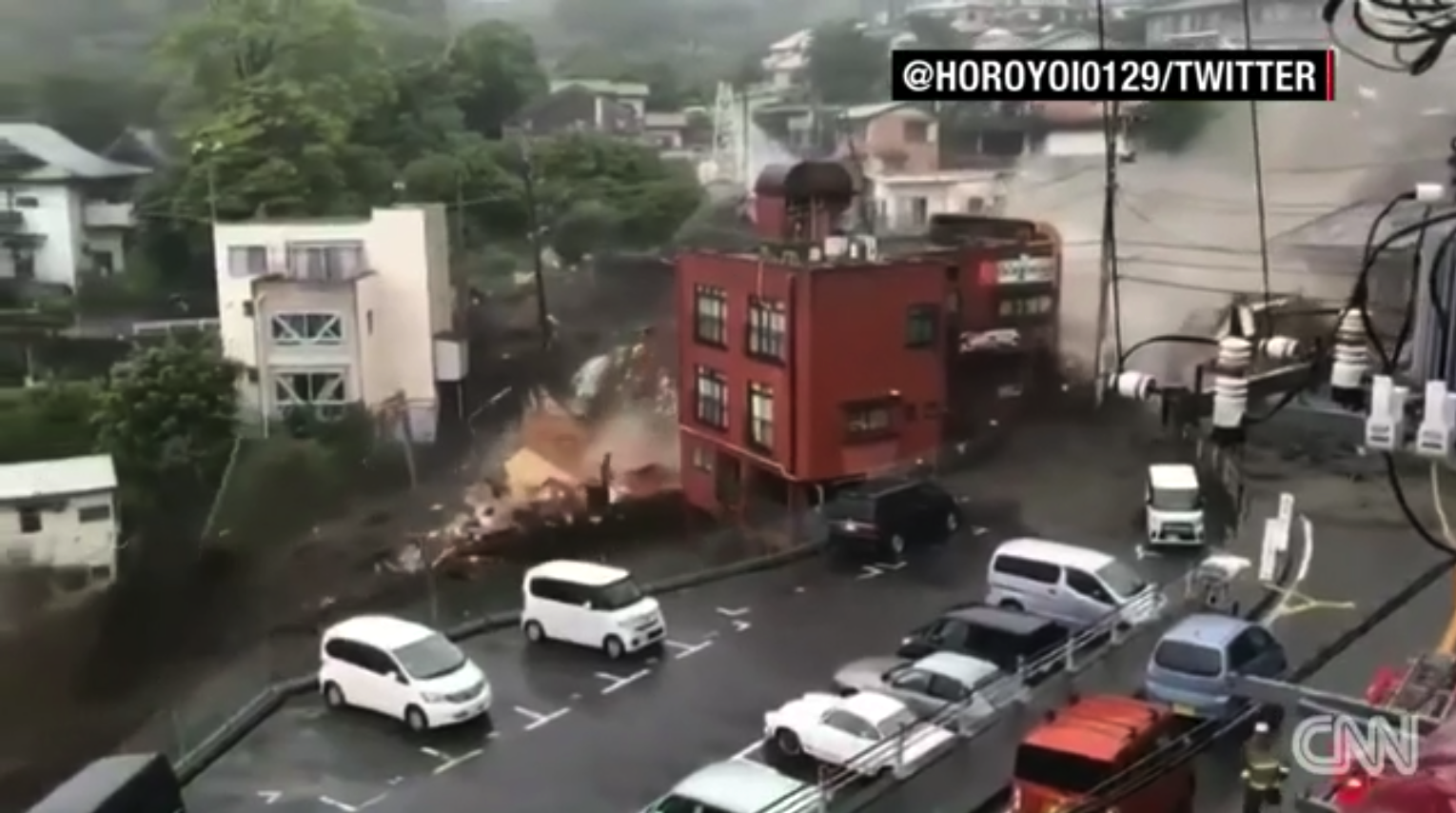
Tokyo, Japan (CNN)At least two people are dead and some 20 people are missing after a mudslide swept across a seaside city around 60 miles southwest of Tokyo, sweeping away homes amid Japan's rainy season.
Footage posted on social media showed the powerful black mudslide shoot down a mountainside, engulfing homes and infrastructure as locals watched in horror.
The giant mudslide in Atami, Shizuoka prefecture, which occurred around 10:30 a.m. local time, came after parts of the region was hit by torrential rain.
An Atami city official confirmed to CNN that two women had died in the landslide.
Police and firefighters have been searching for the missing. They have since stopped for the night and will resume on Sunday morning, an Atami city official said.
The official added that 150 members of the Japan Self-Defense Force had arrived in Atami city to assist with the search and rescue operations.
Sakae Saito, the mayor of Atami city, told reporters that up to 100 to 300 households were affected by Saturday's mudslide.
As of 2 p.m. local time, about 2,830 households in the city were out of power, according to the Tokyo Electric Power Company.
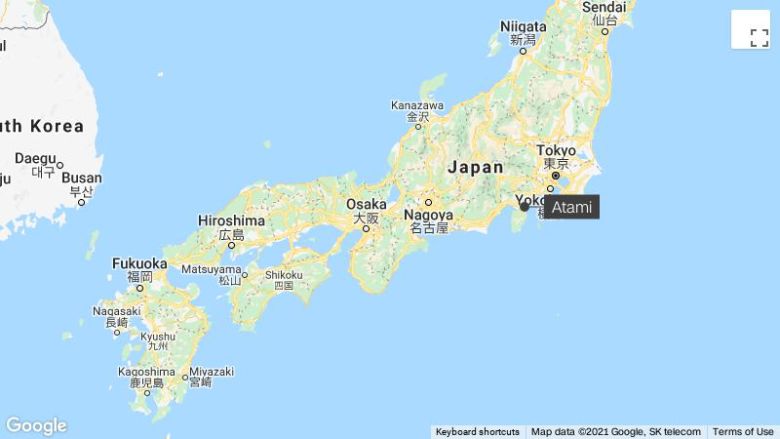
The government has set up a task force to respond to the disaster and collect information as heavy rainfall sweeps areas along the Pacific coast in central and eastern Japan.
Japanese Prime Minister Yoshihide Suga expressed his condolences to the victims of the landslide and stressed that members of the police, fire department service, Japan Coast
Guard, and Japan Self-Defense Forces were doing their utmost to save lives, rescue people and help with evacuations.
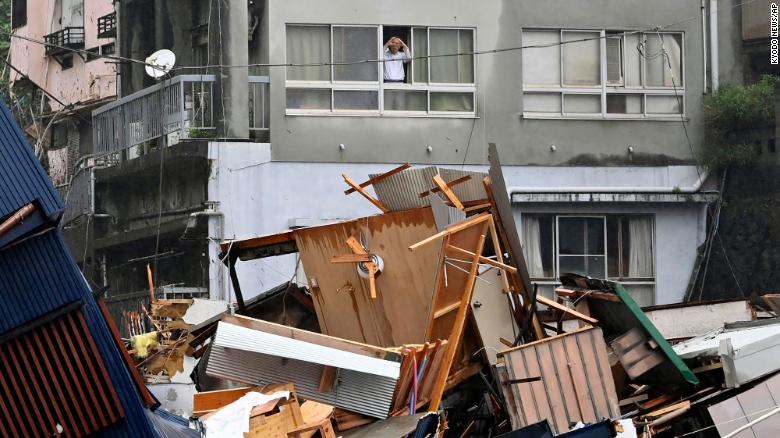
Heita Kawakatsu, the governor of Shizuoka prefecture, expressed his "deepest sympathies" to those affected by the landslide and to "those who have been forced to evacuate," he told a Saturday press conference.
Kawakatsu warned that more rain is expected and said residents should watch out for further landslides. "There are many places where the ground is loose, so please evacuate from dangerous places, listen to information from the city and town, and make sure you and your family are safe," he said.
Taiwan's Ministry of Foreign Affairs issued a message of support to the Japanese government on Twitter Saturday, saying Taiwanese people "were shocked and extremely saddened by the news footage that was broadcast. If Japan needs it, we are ready to provide assistance."
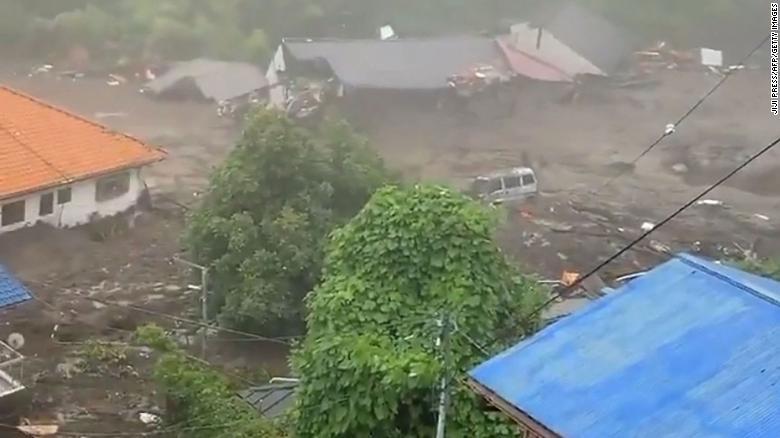
So far, evacuation orders have been issued for people in areas surrounding Tokyo, as well as in Shizuoka, and Aichi prefectures, according to Japan's public broadcaster NHK.
The authorities have issued landslide warnings for parts of Shizuoka, Kanagawa, Chiba and Yamanashi prefectures, NHK reported.
The rain front is expected to move toward the Sea of Japan coast over the weekend, with areas along the coast forecast to see torrential rain on Monday and Tuesday, according to Japan's Meteorological Agency, which also warned of landslides and flooding in low-lying areas.
Japan is prone to landslides, averaging up to 1,500 landslides annually in the past decade -- an almost 50% increase compared to the previous 10 years, according to a 2020 Japanese government report.
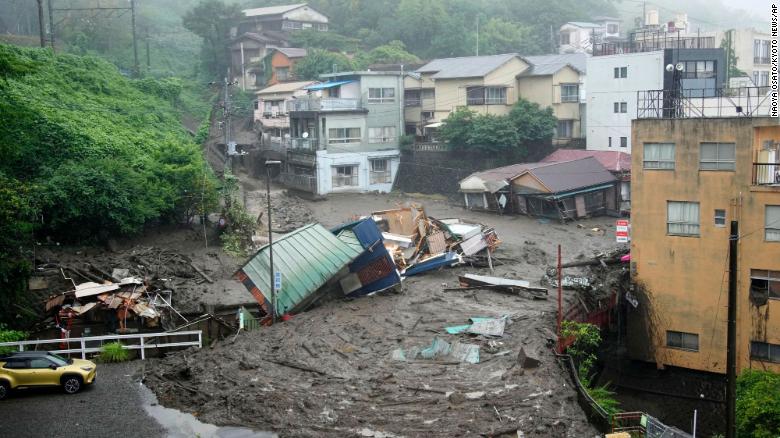
Flooding related disasters, like landslides, are a traditional yet serious risk to the country. This is because half of the Japanese population and 75% of the country assets are concentrated in flood-prone areas, according to experts.
"Japan has a whole lot of risk factors leading to landslides. For instance, it's prone because of its mountainous terrain and a lot of places where the soil is volcanic ash, which is not as strong," seismologist Robert Geller, professor emeritus of the University of Tokyo, told CNN.
A rise in rainfall due to global warming is increasing the risk of devastating mudslides.
"Global warming is making everything worse and is increasing the frequency of rainfall that can cause damaging landslides," Geller added. "The rainy season is going to last for another week or 10 days. Because of global warming, we're probably getting more rainfall now than we normally do."